Home>Articles>Which Is Better Quartz Or Porcelain Countertops
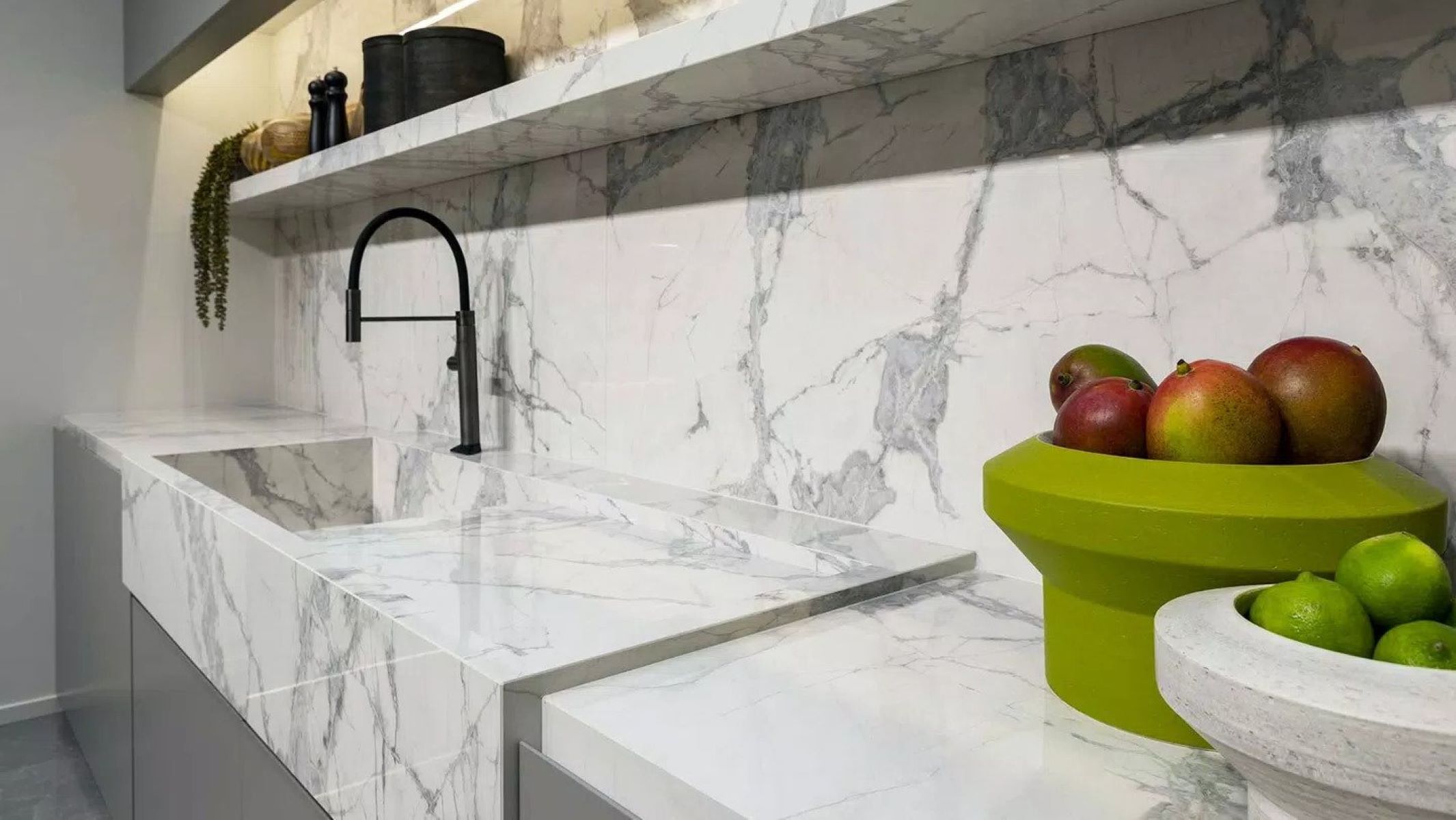

Articles
Which Is Better Quartz Or Porcelain Countertops
Modified: December 7, 2023
Learn about the pros and cons of quartz and porcelain countertops in our informative articles. Make an informed decision for your kitchen or bathroom renovation.
(Many of the links in this article redirect to a specific reviewed product. Your purchase of these products through affiliate links helps to generate commission for Storables.com, at no extra cost. Learn more)
Introduction
When it comes to selecting the perfect countertop for your kitchen or bathroom, one of the decisions you’ll need to make is whether to go with quartz or porcelain. Both materials offer their own unique set of benefits and drawbacks, and understanding the differences between them can help you make an informed decision.
In this article, we will explore the composition, durability, heat resistance, stain resistance, maintenance requirements, aesthetics, and cost of quartz and porcelain countertops. By understanding these factors, you’ll be able to determine which option is better suited to your needs and preferences.
Quartz countertops are engineered stone surfaces that are made by combining approximately 90% ground quartz with resin binders and pigments. This composition results in a countertop that is durable, non-porous, and resistant to scratches and stains. Porcelain countertops, on the other hand, are made from a mixture of clay, feldspar, silica, and other natural materials. They are fired at extremely high temperatures, resulting in a dense, hard, and durable surface.
Now that we have a basic understanding of the composition of quartz and porcelain countertops, let’s delve deeper into the specific aspects that differentiate these two materials.
Key Takeaways:
- Quartz countertops offer durability, low maintenance, and a wide range of color options, making them ideal for homeowners seeking a long-lasting and customizable surface resistant to stains and scratches.
- Porcelain countertops provide exceptional heat resistance, durability, and aesthetic versatility, mimicking the look of natural stone while offering cost-effective options for homeowners looking for resilient and visually appealing surfaces.
Composition of Quartz Countertops
Quartz countertops are made primarily of natural quartz, which is one of the hardest minerals on earth. This natural stone is crushed into small particles and mixed with resin binders and pigments to create the final product. The percentage of quartz in the countertop typically ranges from 90% to 95%, with the remaining percentage consisting of resins and pigments.
The addition of resin binders provides quartz countertops with their strength and durability. The resin binds the crushed quartz particles together, creating a solid and non-porous surface that is resistant to stains and bacteria growth. Additionally, the pigments added during the manufacturing process result in a wide variety of color options, allowing homeowners to choose a countertop that matches their aesthetic preferences.
Unlike natural stone countertops such as granite or marble, quartz countertops do not require sealing. The non-porous nature of the material makes it resistant to stains, preventing liquids from seeping into the surface. This also makes quartz countertops hygienic and easy to clean, as bacteria does not have a chance to penetrate the surface and thrive.
Furthermore, the presence of resin binders enhances the scratch resistance of quartz countertops. While they are not completely impervious to scratches, quartz countertops have a higher level of durability compared to other countertop materials. With proper care and maintenance, quartz countertops can retain their pristine appearance for years to come.
The composition of quartz countertops also makes them resistant to heat. However, it is important to note that extreme heat can still cause damage, so it is recommended to use trivets or hot pads to avoid direct heat contact with the surface.
Overall, the composition of quartz countertops combines the natural beauty of quartz with the durability and functionality of engineered materials. This makes them a popular choice among homeowners looking for a low-maintenance and long-lasting countertop option that also offers a wide range of colors and patterns to suit their design preferences.
Composition of Porcelain Countertops
Porcelain countertops are a type of ceramic countertop made from a mixture of clay, feldspar, silica, and other natural materials. These ingredients are finely ground and then shaped into slabs, which are compacted and fired at extremely high temperatures. The firing process results in a dense and hard surface that is highly resistant to heat, stains, and scratches.
The primary component of porcelain countertops is clay, which acts as a binder to hold the other materials together. The high percentage of clay used in the composition of porcelain countertops contributes to their durability and strength. The presence of feldspar and silica further enhances these properties, making porcelain countertops extremely tough and resistant to impact.
One of the key advantages of porcelain countertops is their non-porous nature. The firing process eliminates any open pores in the material, making it impervious to liquids and stains. This characteristic makes porcelain countertops highly resistant to spills, ensuring that no liquids or substances can seep into the surface and cause permanent staining or bacterial growth.
Additionally, the composition of porcelain countertops provides them with excellent heat resistance. They can withstand high temperatures without any damage or discoloration. This makes porcelain countertops ideal for areas where hot cookware or appliances are frequently used, such as the kitchen.
Porcelain countertops are also known for their durability and scratch resistance. The hard surface of porcelain makes it highly resilient to scratches and abrasions, ensuring that the countertop retains its smooth and polished appearance for a long time. However, it is still recommended to use cutting boards and avoid dragging heavy objects across the surface to prevent potential scratches.
Furthermore, the composition of porcelain countertops allows for a wide range of design options. The materials used can be manipulated to create various colors, patterns, and textures, providing homeowners with the opportunity to customize their countertops to match their desired aesthetic.
Overall, the composition of porcelain countertops combines the strength and durability of natural materials with the versatility of ceramic production. The resulting countertops offer a stylish and resilient surface that is resistant to heat, stains, and scratches, making them a popular choice for both residential and commercial applications.
Comparison of Durability
When it comes to durability, both quartz and porcelain countertops are known for their strength and resilience. However, there are some key differences to consider.
Quartz countertops are engineered to be highly durable. The combination of natural quartz and resin binders creates a surface that is resistant to scratches, stains, and impact. This makes quartz countertops an excellent choice for high-traffic areas or households with children or pets. With proper care and maintenance, quartz countertops can maintain their appearance for many years without showing signs of wear or deterioration.
Porcelain countertops, on the other hand, are known for their exceptional durability. The firing process during manufacturing makes porcelain countertops extremely hard and dense. They are highly resistant to scratches, impact, and wear, making them suitable for even the most demanding environments. Additionally, the non-porous nature of porcelain countertops prevents them from absorbing moisture, which can lead to cracking or weakening of the material over time.
However, it is important to note that while both quartz and porcelain countertops are durable, they are not indestructible. Heavy and sharp objects can potentially cause damage to the surface, so it is advisable to use cutting boards and trivets to protect the countertops. Additionally, proper care and maintenance should be followed to ensure the longevity of both quartz and porcelain countertops.
In terms of overall durability, porcelain countertops may have a slight edge due to their dense composition and unique manufacturing process. They are less likely to chip or crack compared to quartz countertops. However, it is important to consider that individual circumstances and usage patterns can also play a role in the durability of the countertops. It is recommended to assess your specific needs and consult with experts to determine which option would be most suitable for your requirements.
Ultimately, both quartz and porcelain countertops offer excellent durability, providing homeowners with long-lasting and reliable surfaces that can withstand daily use and maintain their appearance for years to come.
Comparison of Heat Resistance
In terms of heat resistance, both quartz and porcelain countertops have their own unique properties and limitations.
Quartz countertops are engineered to be heat resistant, but they do have some limitations. While they can withstand moderate heat from hot pots and pans, prolonged exposure to extreme heat can cause damage to the resin binders. Direct contact with hot cookware or appliances should be avoided, as it can lead to discoloration, warping, or even cracking of the surface. To protect your quartz countertop from heat damage, it is recommended to use trivets, hot pads, or cutting boards as a barrier between the countertop and hot objects.
Porcelain countertops, on the other hand, are known for their exceptional heat resistance. Due to their dense composition and high firing temperatures during the manufacturing process, porcelain countertops can withstand extremely high temperatures without suffering any damage. You can place hot pans and pots directly on the surface without worrying about heat-related issues. This makes porcelain countertops an ideal choice for avid cooks or households that regularly use hot appliances.
It is important to note that even though porcelain countertops are highly heat resistant, sudden changes in temperature can still cause thermal shock, resulting in cracks or fractures. It is advisable to avoid placing extremely cold or frozen items directly on the surface of the countertop. Using a cutting board or a trivet can help minimize the risk of thermal shock and keep your porcelain countertop in optimal condition.
When comparing the heat resistance of quartz and porcelain countertops, porcelain has the advantage of superior heat resistance. However, it is essential to exercise caution with both materials to ensure the longevity and integrity of your countertops. By following proper care and maintenance guidelines and using protective measures, you can enjoy the benefits of heat resistance offered by both quartz and porcelain countertops.
In summary, while both quartz and porcelain countertops have some level of heat resistance, porcelain countertops have a higher tolerance for extreme heat, making them more suitable for direct heat exposure. Quartz countertops require additional precautions to protect them from potential heat damage. Consider your specific cooking habits and usage patterns when deciding which option is best suited for your kitchen needs.
Quartz countertops are more durable and require less maintenance than porcelain. However, porcelain offers a wider range of design options and is more heat-resistant. Consider your lifestyle and design preferences when choosing between the two.
Read more: Porcelain vs Ceramic Tile: Which Is Better
Comparison of Stain Resistance
When it comes to stain resistance, both quartz and porcelain countertops offer excellent protection against common household stains. However, there are some variations in their performance and maintenance requirements.
Quartz countertops are engineered to be non-porous, meaning they do not absorb liquids. This makes them highly resistant to stains caused by spills from foods, beverages, and household chemicals. Even substances like coffee, wine, and oil can be easily wiped away without leaving behind any lasting marks. The smooth and impermeable surface of quartz countertops eliminates the need for sealing, making them virtually maintenance-free when it comes to stain prevention.
On the other hand, porcelain countertops are also non-porous and exhibit excellent stain resistance. The high firing temperatures during the manufacturing process create a dense surface that repels liquids and prevents staining. Like quartz, porcelain countertops do not require sealing and can be easily cleaned with mild soap and water.
While both quartz and porcelain countertops are resistant to common household stains, it is important to note that certain substances, if left on the surface for an extended period, can potentially cause temporary discoloration or etching. It is advisable to promptly clean up spills and avoid placing hot or acidic items directly on the countertops. Using cutting boards and trivets can provide an added layer of protection against potential stains.
To keep both quartz and porcelain countertops looking their best, it is recommended to clean up spills as soon as possible, particularly acidic or strongly colored substances. Regular maintenance with non-abrasive cleaners will ensure that the countertops maintain their stain resistance over time.
In terms of stain resistance, both quartz and porcelain countertops offer reliable protection against common household stains. The choice between the two may come down to personal preference in terms of design, durability, and other factors.
Remember, proper cleaning and maintenance are key to preserving the stain-resistant properties of your countertops, regardless of the material you choose.
In summary, both quartz and porcelain countertops provide excellent stain resistance due to their non-porous nature. With regular care and cleaning, both materials can maintain their pristine appearance and remain resistant to staining for many years.
Comparison of Maintenance
When it comes to maintenance, both quartz and porcelain countertops offer advantages in terms of ease of care and upkeep.
Quartz countertops are known for their low-maintenance qualities. Due to their non-porous surface, they do not require sealing, unlike natural stone countertops. Cleaning quartz countertops is as simple as using mild soap and water or a non-abrasive cleaner. Regular wiping with a soft cloth or sponge is usually sufficient to keep them clean and free from dirt and grime. Additionally, quartz countertops are resistant to stains, which means that spills can be easily wiped away without leaving a lasting mark.
Porcelain countertops also have a reputation for being relatively low-maintenance. Like quartz, they do not require sealing and can be cleaned with basic household cleaners. However, it is important to use non-abrasive cleaners to avoid scratching the surface. Regular wiping with a soft cloth or sponge is recommended to keep porcelain countertops free from dust and dirt.
In terms of long-term maintenance, both quartz and porcelain countertops are durable and resilient. They are resistant to scratches, stains, and heat, which minimizes the need for repairs or replacement. However, it is still advisable to exercise caution and use cutting boards, trivets, and hot pads to prevent potential damage.
It is important to note that while both quartz and porcelain countertops are considered low-maintenance, they may require different cleaning methods for specific stains or blemishes. Referencing the manufacturer’s guidelines or consulting with professionals can provide guidance on how to tackle specific cleaning issues.
In general, both quartz and porcelain countertops offer ease of maintenance and require minimal effort to keep them looking their best. Regular cleaning and taking precautionary measures can help prolong their lifespan and retain their appearance over time.
Ultimately, the choice between quartz and porcelain countertops in terms of maintenance may come down to personal preference and individual circumstances, such as the level of usage and lifestyle factors. Consider your specific needs and consult with experts to determine which option would be the most suitable for your maintenance requirements.
Comparison of Aesthetics
When it comes to aesthetics, both quartz and porcelain countertops offer a wide range of options to suit various design preferences and styles.
Quartz countertops are engineered products that can be manufactured in a variety of colors and patterns. The addition of pigments during the production process allows for endless customization possibilities. Whether you prefer solid colors, subtle veining, or bold patterns, quartz countertops can be tailored to match your desired aesthetic. The consistent and uniform appearance of quartz countertops also ensures that they will seamlessly blend with any interior design scheme.
Porcelain countertops, on the other hand, offer a natural and timeless beauty. They are available in a wide range of colors, textures, and patterns that mimic the look of natural stone, such as marble or granite. This allows for the creation of unique and visually appealing designs. Porcelain countertops can enhance the overall aesthetics of your space, adding elegance and sophistication to any kitchen or bathroom.
Both quartz and porcelain countertops provide a smooth and polished surface, enhancing the overall visual appeal of the countertop. The versatility of design options ensures that homeowners can find the perfect match for their individual style and preferences. Whether you prefer a modern, minimalist look or a more traditional and classic design, both materials offer a wide range of choices to suit your aesthetic vision.
It is important to note that while both quartz and porcelain countertops are visually appealing, the final decision may also depend on other factors such as the existing décor, color scheme, and overall style of the space. It is advisable to consider samples, view them in different lighting conditions, and consult with professionals or designers to ensure the perfect fit for your aesthetic goals.
In summary, both quartz and porcelain countertops offer a variety of aesthetic options to enhance the overall look and feel of your kitchen or bathroom. The choice between the two will ultimately depend on your personal style preferences and the desired ambiance you want to create in your living space.
Comparison of Cost
When it comes to cost, both quartz and porcelain countertops have their own price considerations.
Quartz countertops are generally considered to be on the higher end of the price spectrum due to their durability, longevity, and versatility. The manufacturing process involved in creating quartz countertops, which combines natural quartz with resin binders and pigments, can contribute to the higher cost. Additionally, the wide range of customization options available for quartz countertops can also affect the overall cost.
On the other hand, porcelain countertops can be more cost-effective compared to quartz countertops. The manufacturing process of porcelain countertops involves the use of natural materials such as clay, feldspar, and silica, which can contribute to a more affordable price point. However, it is important to note that high-end or specialized porcelain options can still be on par with or even exceed the cost of certain quartz varieties.
It is crucial to consider that factors like brand, quality, and design variations can greatly influence the final cost of both quartz and porcelain countertops. Additionally, the size and complexity of the installation project can also impact the overall budget.
When comparing the cost of quartz and porcelain countertops, it is essential to assess your specific needs, preferences, and budget constraints. Obtain quotes from reputable suppliers, compare the pricing options, and evaluate the long-term value you will receive from each material.
Furthermore, consider the lifespan and durability of the countertops. While quartz countertops may have a higher upfront cost, their long-lasting nature and resistance to wear and tear can justify the investment over time. Porcelain countertops, with their durability and heat, scratch, and stain resistance, can also provide long-term value for homeowners seeking a cost-effective option.
In summary, the cost of both quartz and porcelain countertops can vary depending on factors like material quality, design options, and project requirements. It is advisable to carefully evaluate the pricing options, consider the durability and value each material provides, and choose the option that fits your budget and overall requirements.
Read more: What Are Quartz Countertops
Conclusion
Choosing between quartz and porcelain countertops ultimately comes down to personal preference and weighing the pros and cons of each material. Both options offer their own unique set of benefits, and understanding their composition, durability, heat resistance, stain resistance, maintenance requirements, aesthetics, and cost can help you make an informed decision.
Quartz countertops are engineered stone surfaces that offer durability, scratch resistance, and a wide range of color and pattern options. They are non-porous, making them resistant to stains, and require minimal maintenance. While they can withstand heat to a certain extent, precautions should be taken to protect the surface from direct contact with hot objects.
Porcelain countertops, on the other hand, are made from a mixture of clay, feldspar, silica, and other natural materials. They offer exceptional durability, heat resistance, and stain resistance. They can withstand high temperatures without any damage and are virtually maintenance-free. Their aesthetic appeal lies in mimicking the look of natural stone, with a wide range of colors and patterns available.
In terms of cost, quartz countertops tend to be on the higher end, while porcelain countertops can be a more cost-effective option. However, it is crucial to evaluate factors like material quality, design options, and long-term value when considering the overall cost of the project.
Ultimately, the choice between quartz and porcelain countertops depends on your specific needs, lifestyle, design preferences, and budget. Consider factors such as durability, heat resistance, stain resistance, maintenance requirements, aesthetics, and cost to determine which option best suits your requirements.
It is recommended to consult with professionals, visit showrooms, and view samples to get a better understanding of how quartz and porcelain countertops will look and perform in your space. Getting expert advice and considering your personal preferences will ensure that you make an informed decision and choose the countertop material that will provide you with both functionality and aesthetic satisfaction for years to come.
Frequently Asked Questions about Which Is Better Quartz Or Porcelain Countertops
Was this page helpful?
At Storables.com, we guarantee accurate and reliable information. Our content, validated by Expert Board Contributors, is crafted following stringent Editorial Policies. We're committed to providing you with well-researched, expert-backed insights for all your informational needs.
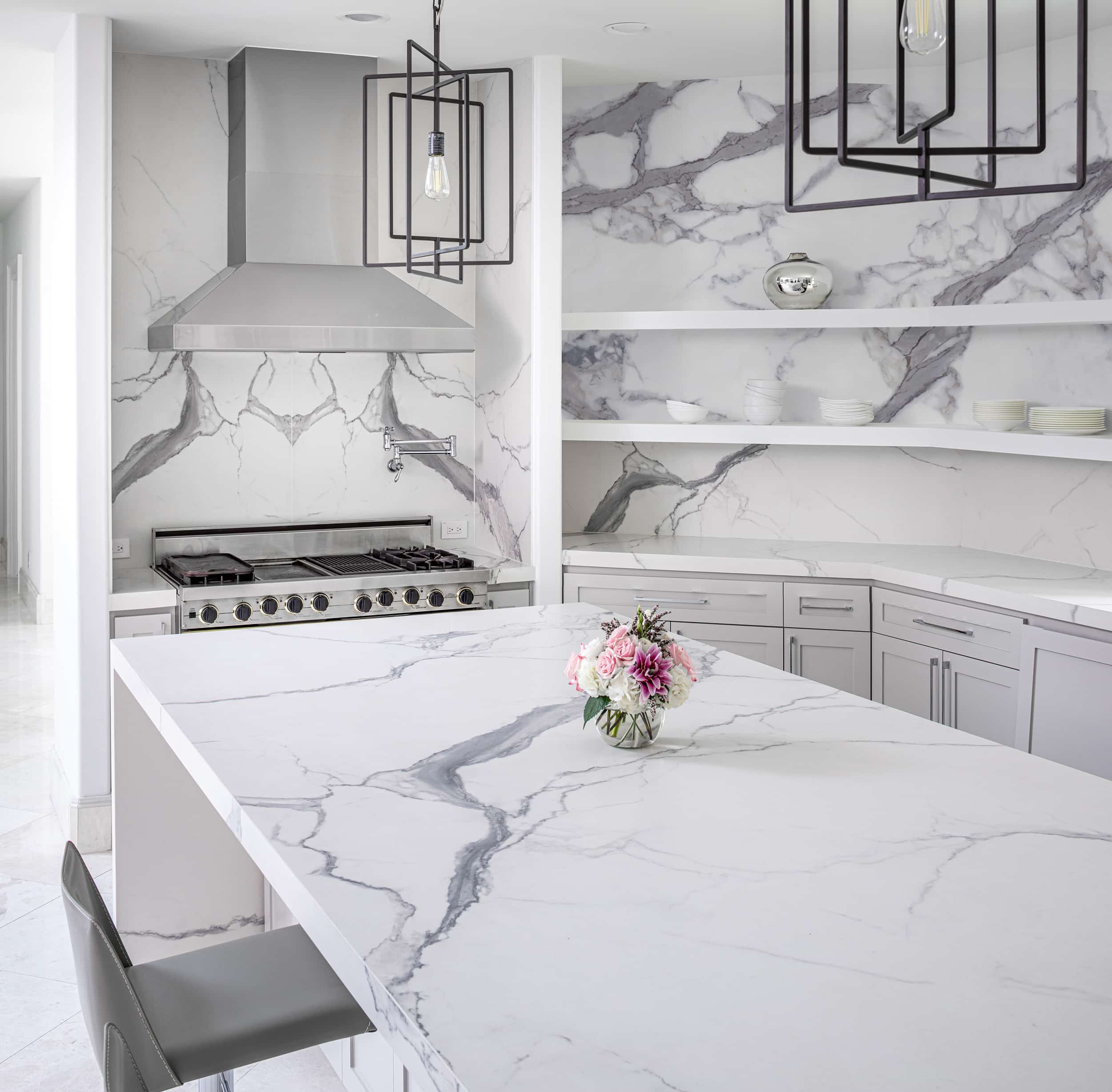
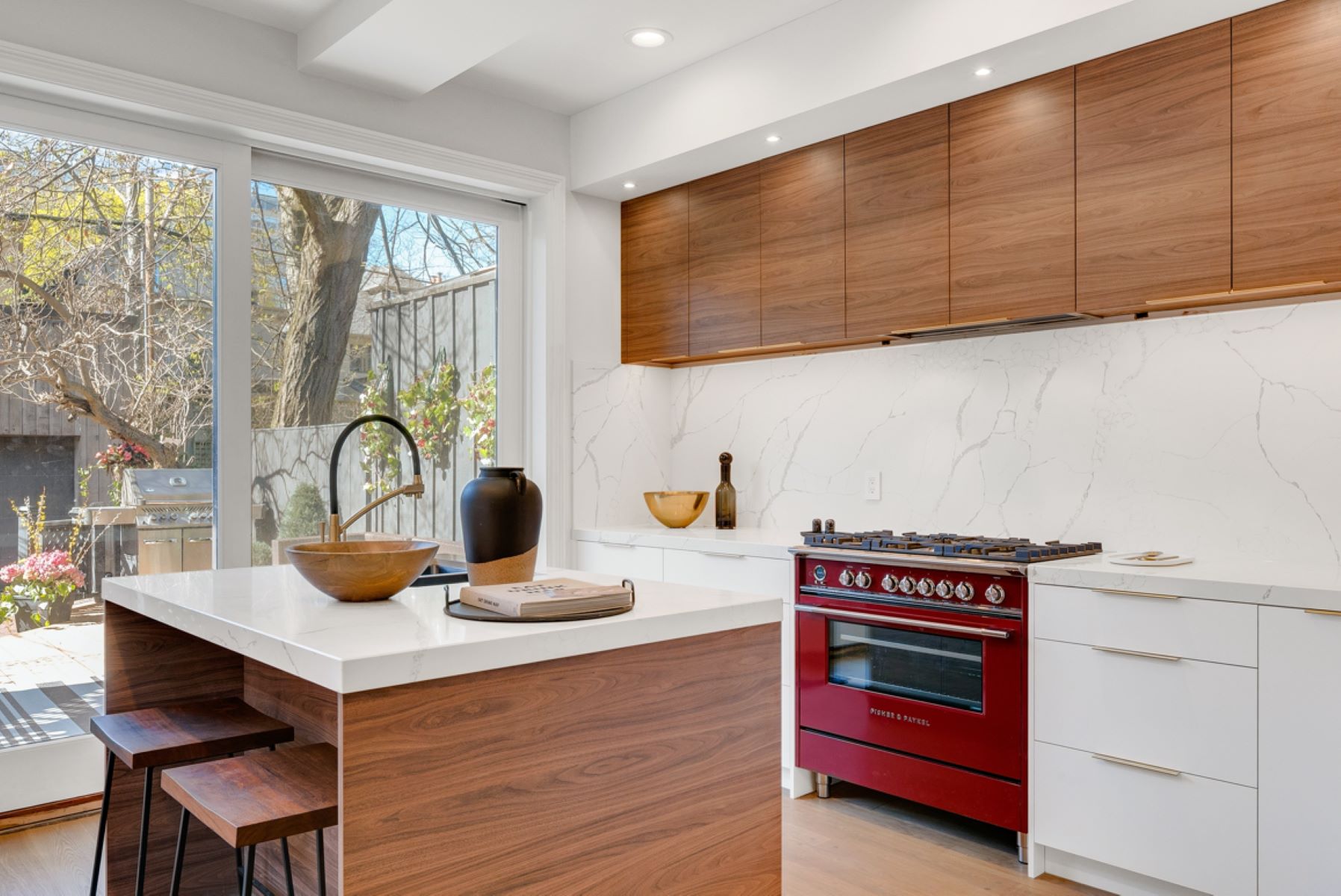
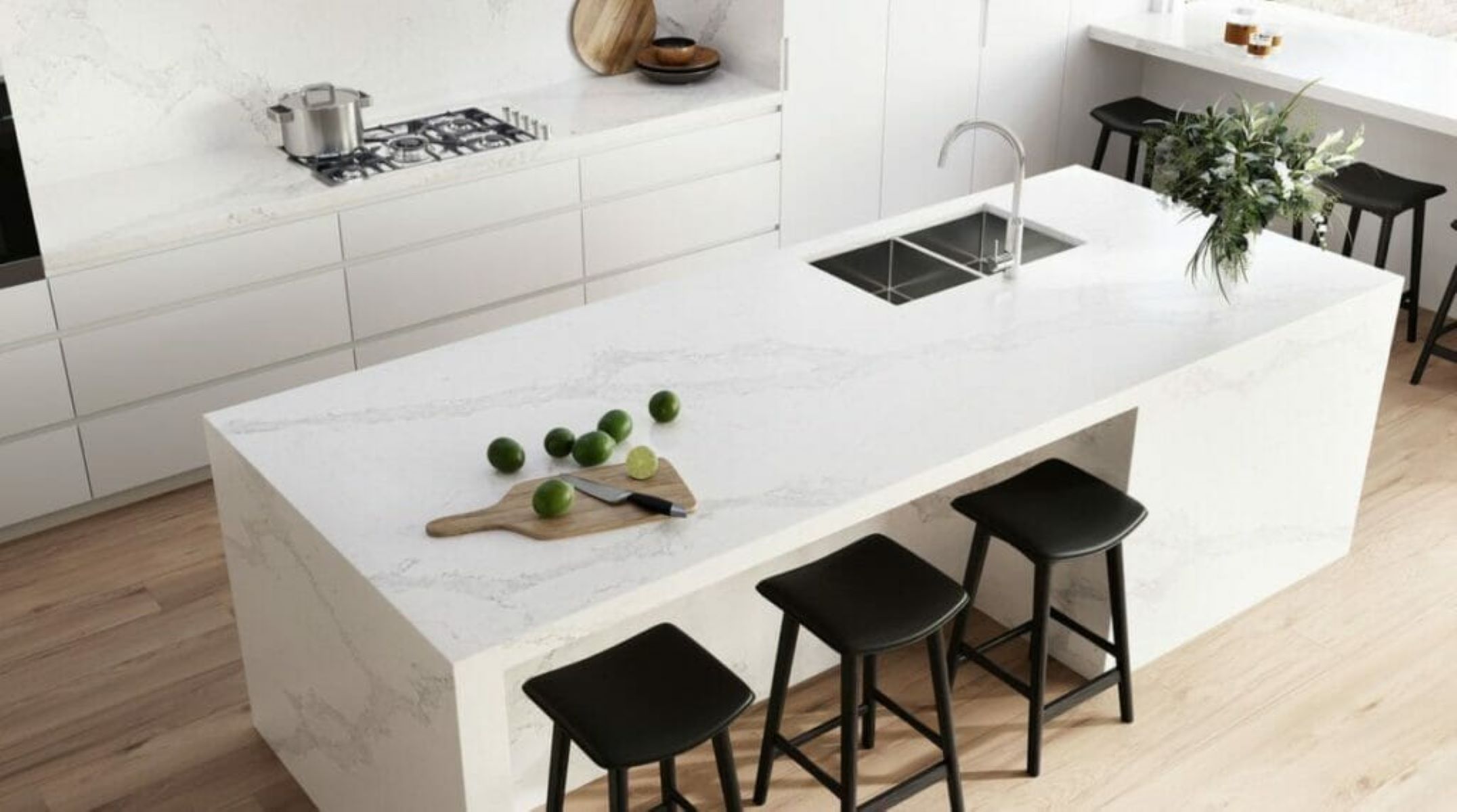
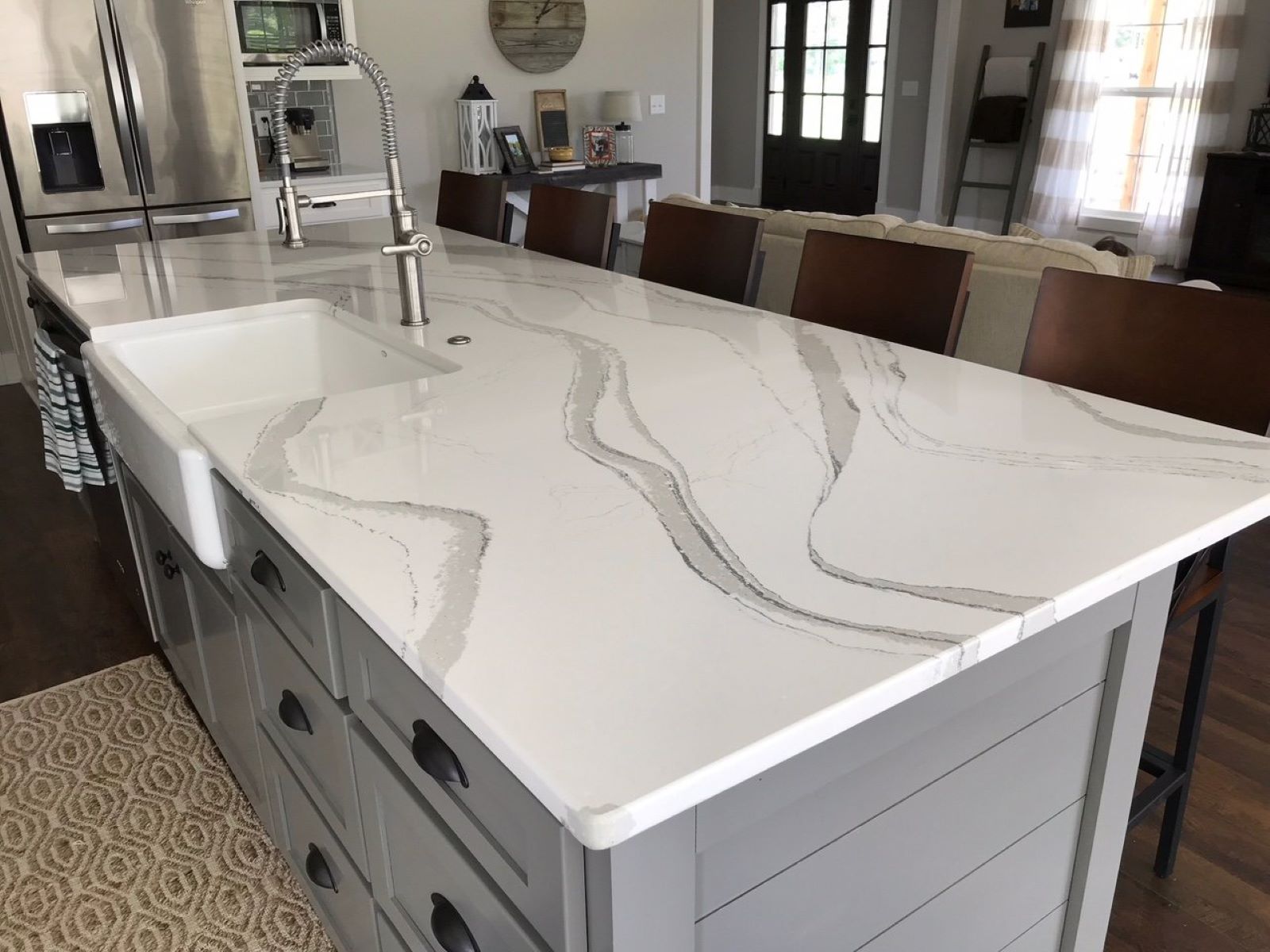

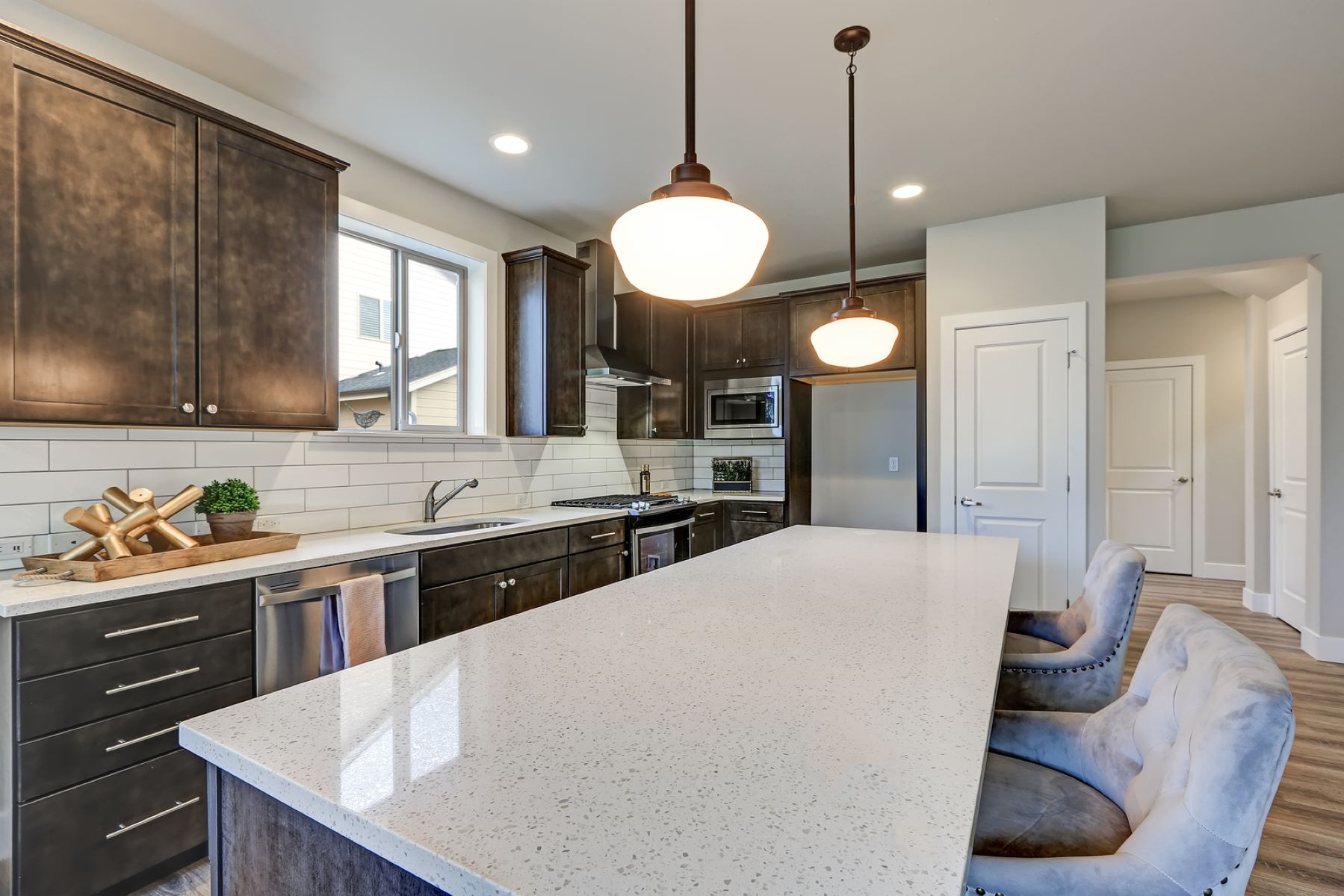
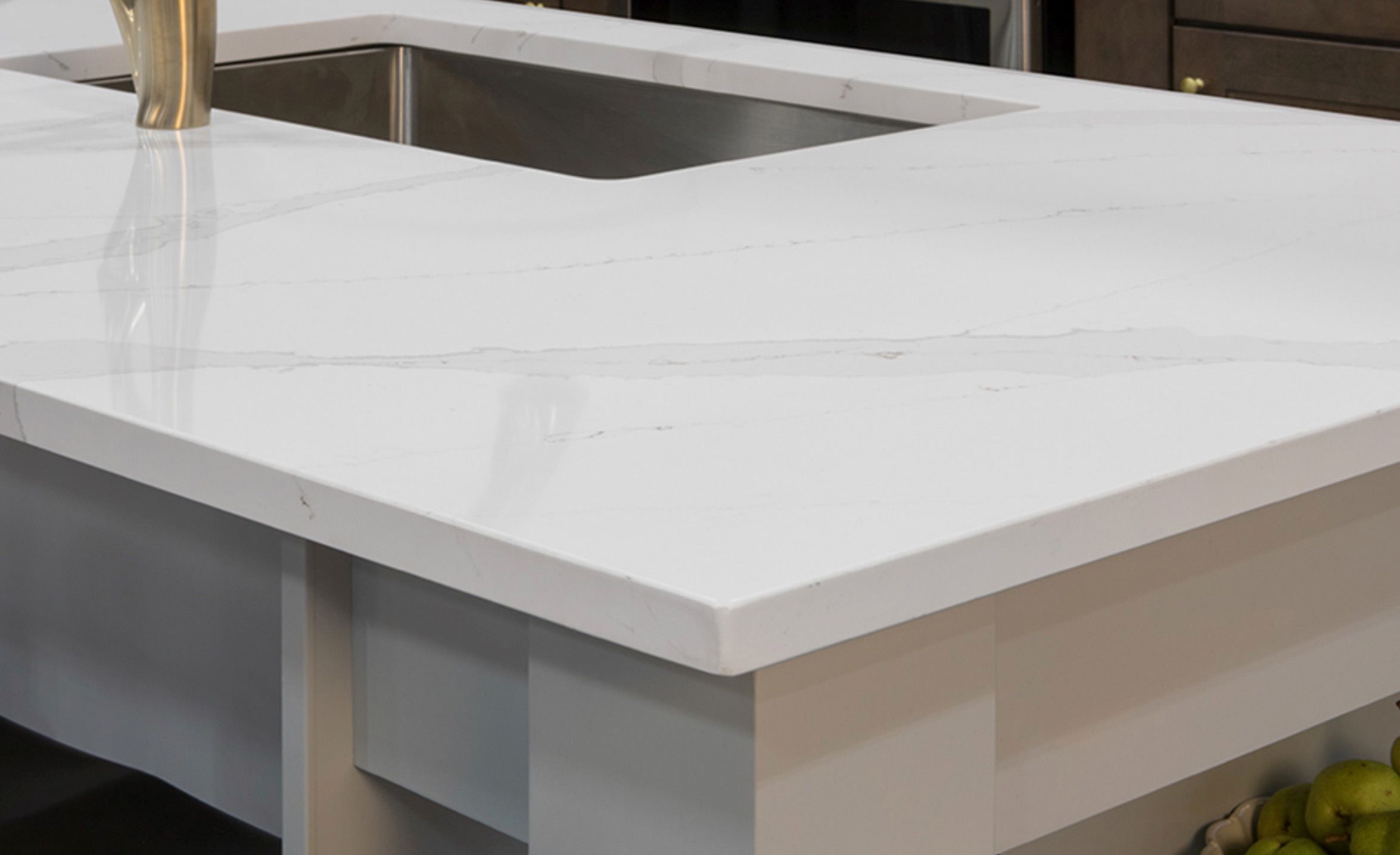
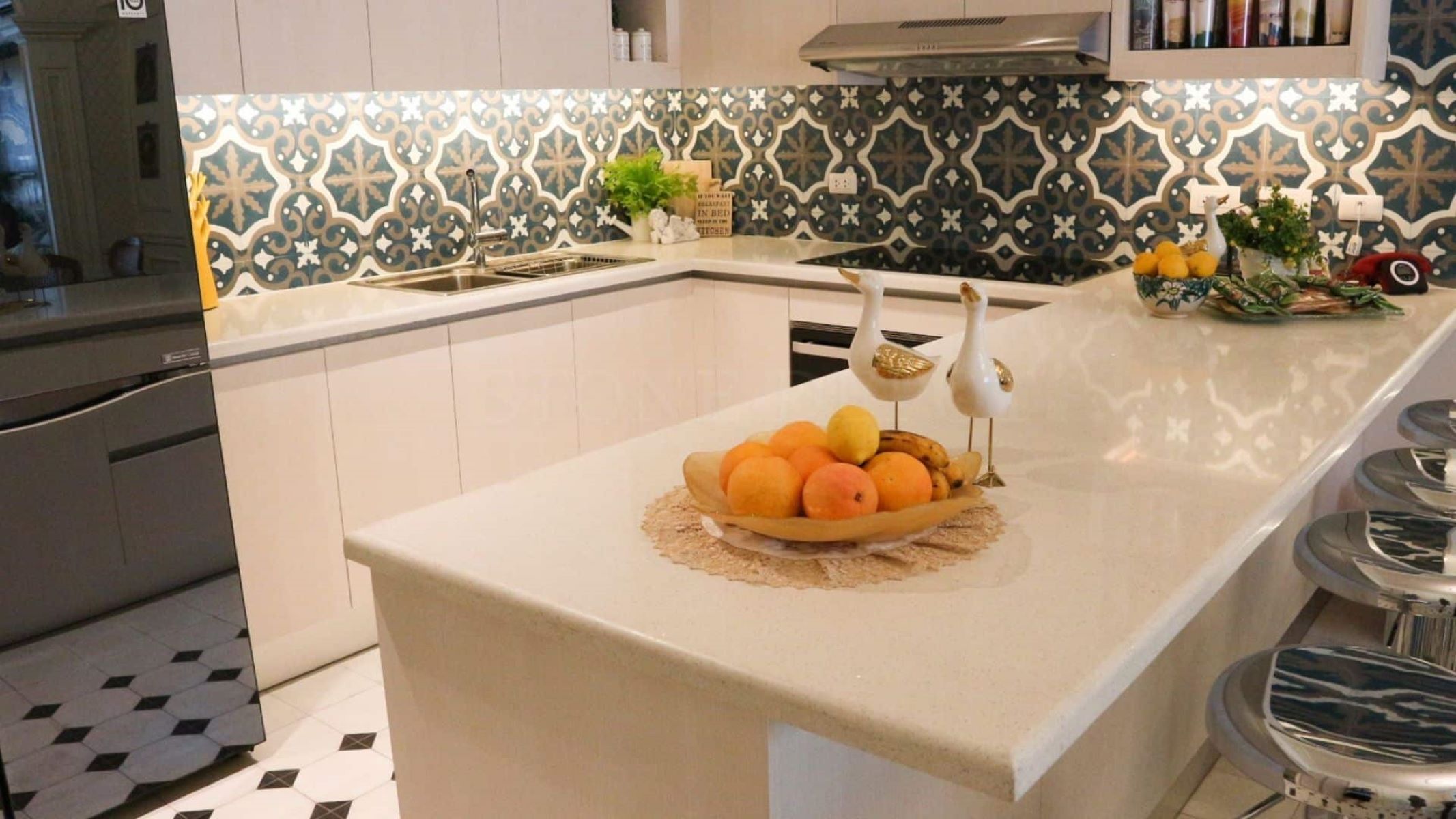
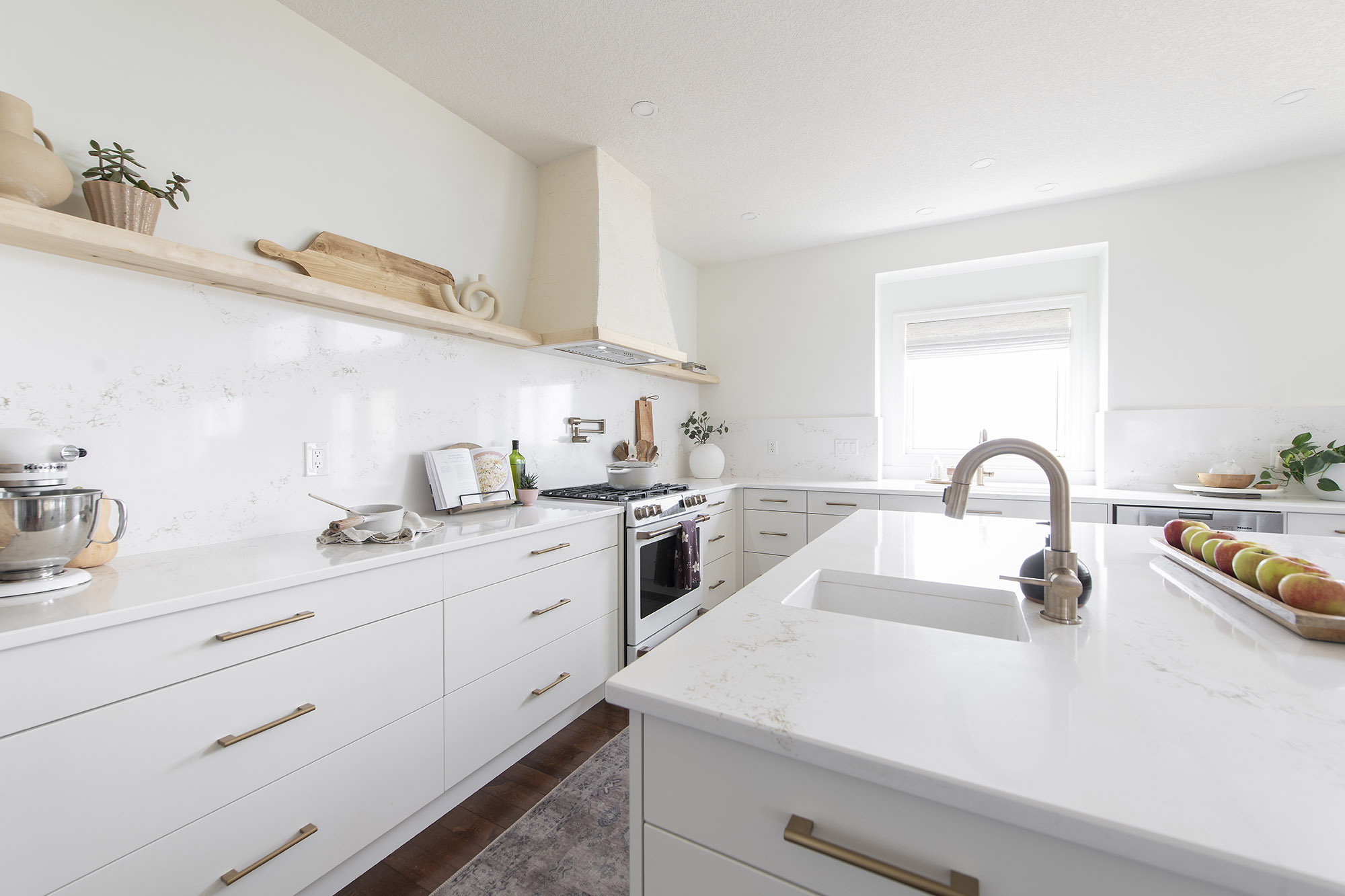
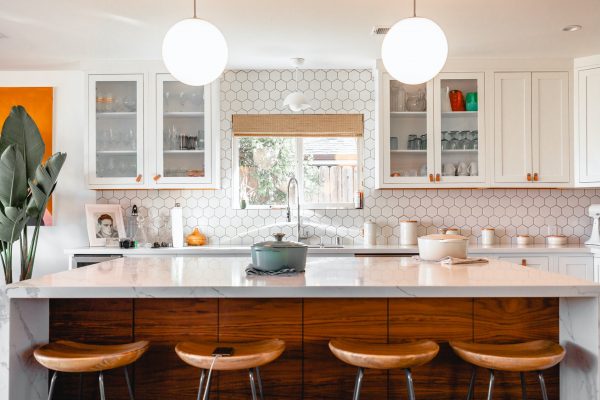
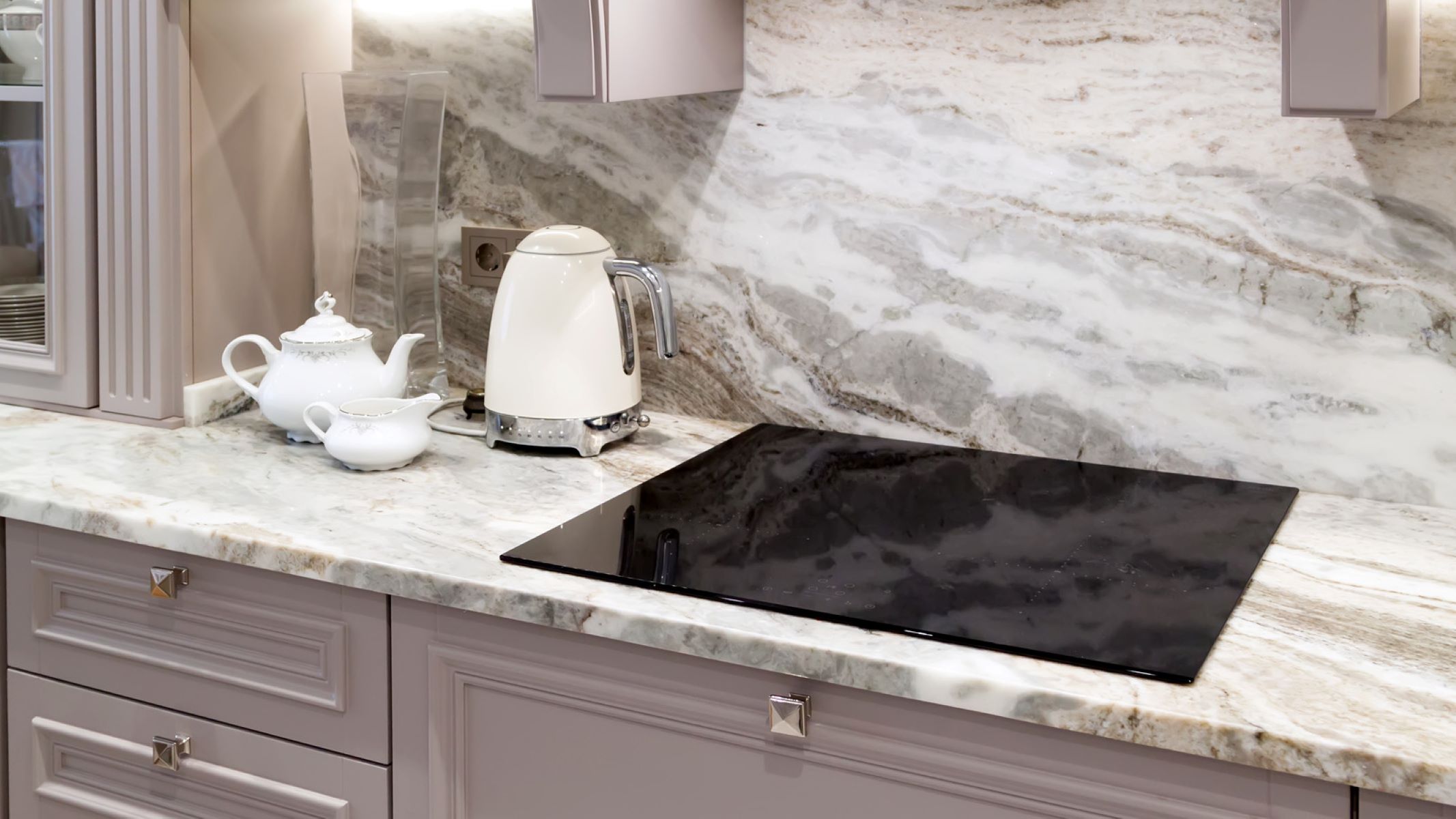
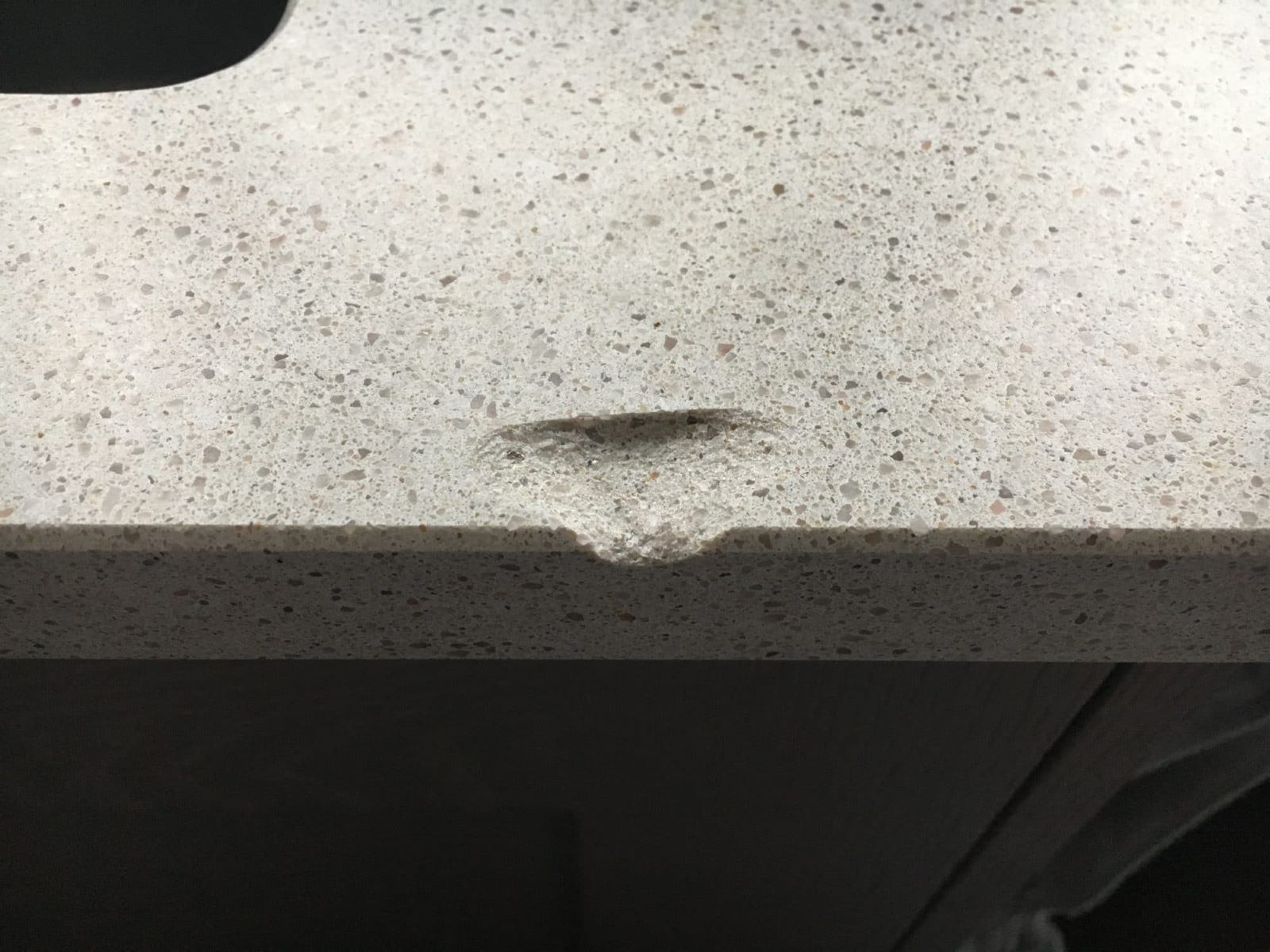
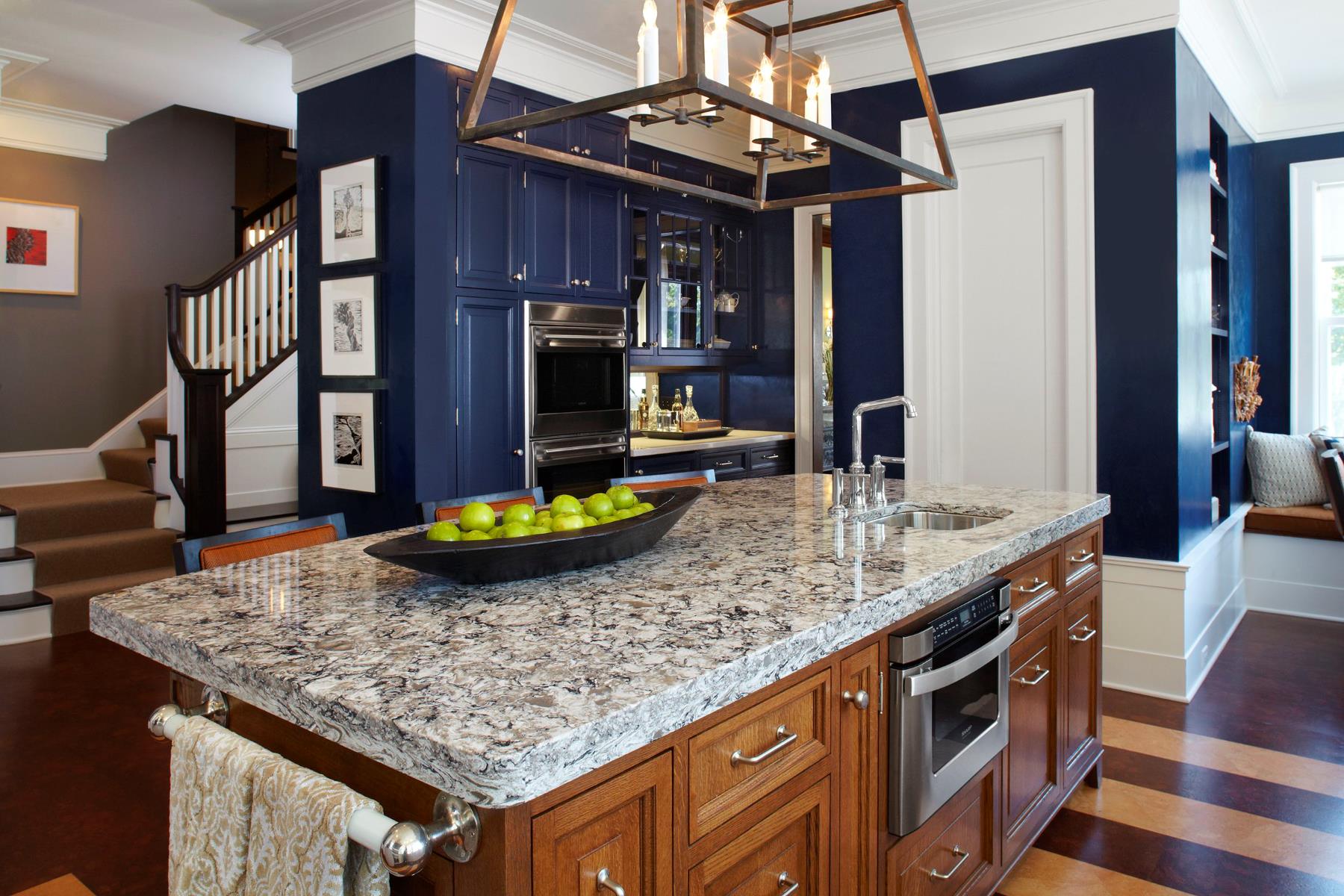

0 thoughts on “Which Is Better Quartz Or Porcelain Countertops”